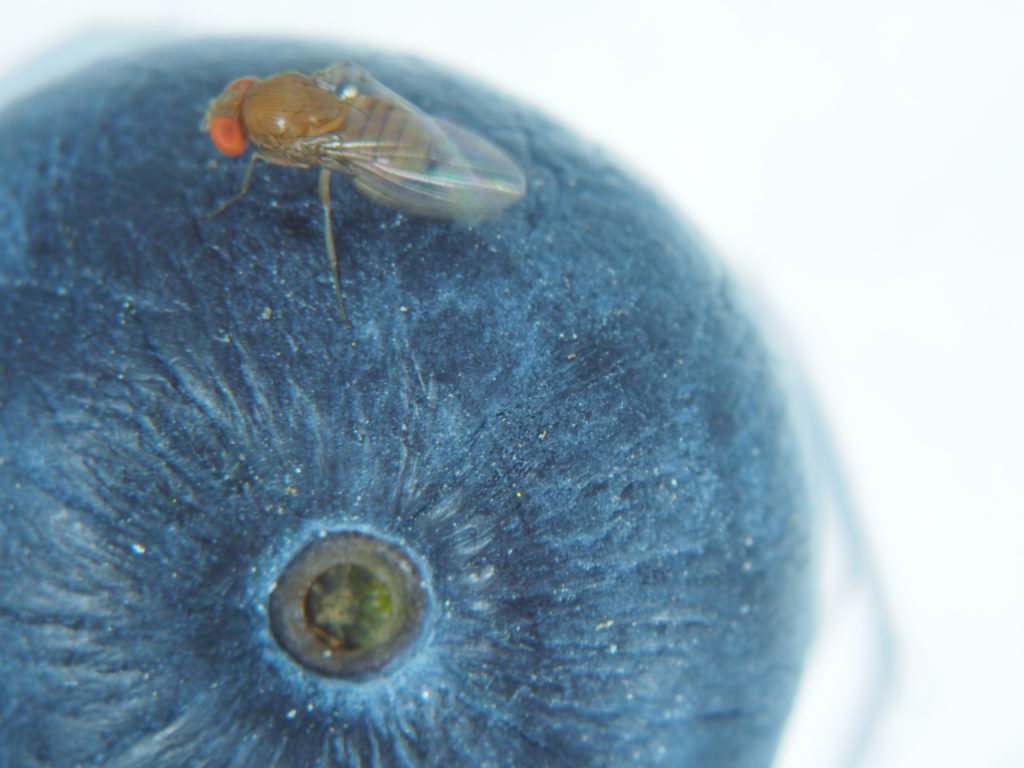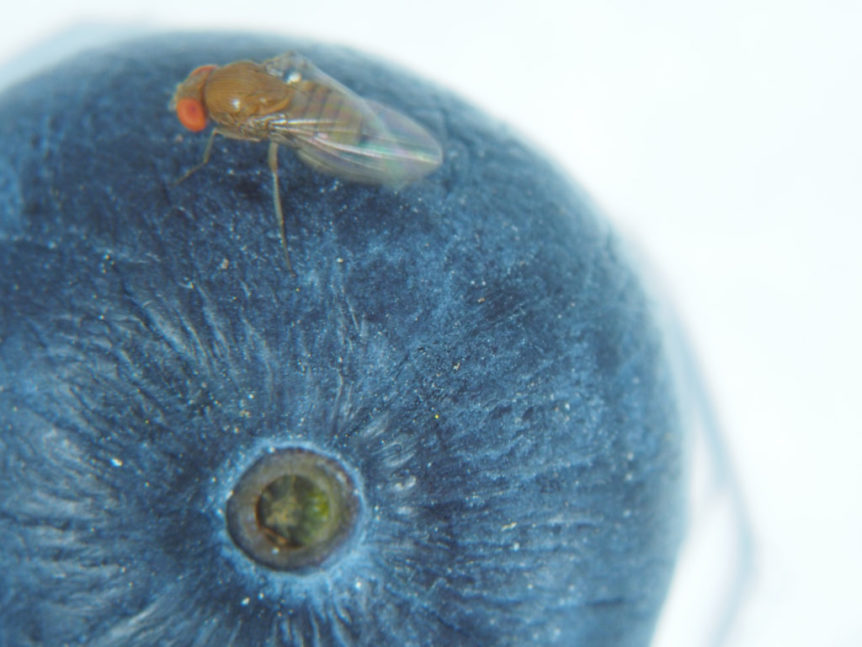Florida blueberry producers should be wary that spotted wing drosophila (SWD) has been spotted on multiple farms in central Florida, which is earlier than normal compared to previous years.

The Florida Blueberry Growers Association issued an alert to its members on Monday, including recommendations from University of Florida Institute of Food and Agricultural Sciences Extension personnel that producers scout for the presence of SWD and implement control measures if and when appropriate.
“What we have been using for a long time to monitor for SWD is the Scentry trap with Scentry lure, which still catches the most flies,” said Oscar Liburd, professor and program leader in fruit and vegetable entomology at UF/IFAS. “There is a new trap, which is a red sticky trap with a Trece lure. This trap catches earlier, but not as many, flies as the Scentry trap. Any one of the organophosphates, including Malathion, Diazinon, etc. and synthetic pyrethriods, such as Mustang Maxx, Danitol, etc. can provide effective control. If you are looking for a reduced-risk pesticide, a good option would be Exirel”.
SWD can be a costly pest to blueberry production. SWD will deposit eggs into ripe blueberries and leave the fruit unmarketable. Buyers will not accept blueberries with SWD damage.
Blueberry farmers can also locate the 2022 Florida Blueberry Integrated Pest Management Guide or the UF/IFAS Blueberry Growers Guide app for additional management information.










